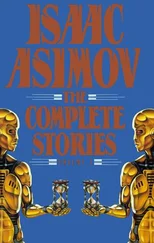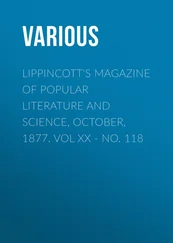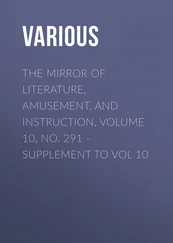Isaac Disraeli - Curiosities of Literature (Vol. 1-3)
Здесь есть возможность читать онлайн «Isaac Disraeli - Curiosities of Literature (Vol. 1-3)» — ознакомительный отрывок электронной книги совершенно бесплатно, а после прочтения отрывка купить полную версию. В некоторых случаях можно слушать аудио, скачать через торрент в формате fb2 и присутствует краткое содержание. Жанр: unrecognised, на английском языке. Описание произведения, (предисловие) а так же отзывы посетителей доступны на портале библиотеки ЛибКат.
- Название:Curiosities of Literature (Vol. 1-3)
- Автор:
- Жанр:
- Год:неизвестен
- ISBN:нет данных
- Рейтинг книги:3 / 5. Голосов: 1
-
Избранное:Добавить в избранное
- Отзывы:
-
Ваша оценка:
- 60
- 1
- 2
- 3
- 4
- 5
Curiosities of Literature (Vol. 1-3): краткое содержание, описание и аннотация
Предлагаем к чтению аннотацию, описание, краткое содержание или предисловие (зависит от того, что написал сам автор книги «Curiosities of Literature (Vol. 1-3)»). Если вы не нашли необходимую информацию о книге — напишите в комментариях, мы постараемся отыскать её.
Curiosities of Literature (Vol. 1-3) — читать онлайн ознакомительный отрывок
Ниже представлен текст книги, разбитый по страницам. Система сохранения места последней прочитанной страницы, позволяет с удобством читать онлайн бесплатно книгу «Curiosities of Literature (Vol. 1-3)», без необходимости каждый раз заново искать на чём Вы остановились. Поставьте закладку, и сможете в любой момент перейти на страницу, на которой закончили чтение.
Интервал:
Закладка:
Those who will have the word to be derived from Pam, the famous knave of Loo, do not differ much from Minshew; for the derivation of the word Pam is in all probability from πἁν, all ; or the whole or the chief of the game.
Under this first etymological notion of Pamphlets may be comprehended the vulgar stories of the Nine Worthies of the World, of the Seven Champions of Christendom, Tom Thumb, Valentine and Orson, &c., as also most of apocryphal lucubrations. The greatest collection of this first sort of Pamphlets are the Rabbinic traditions in the Talmud, consisting of fourteen volumes in folio, and the Popish legends of the Lives of the Saints, which, though not finished, form fifty folio volumes, all which tracts were originally in pamphlet forms.
The second idea of the radix of the word Pamphlet is, that it takes its derivations from πἁν, all , and φιλἑω, I love , signifying a thing beloved by all; for a pamphlet being of a small portable bulk, and of no great price, is adapted to every one's understanding and reading. In this class may be placed all stitched books on serious subjects, the best of which fugitive pieces have been generally preserved, and even reprinted in collections of some tracts, miscellanies, sermons, poems, &c.; and, on the contrary, bulky volumes have been reduced, for the convenience of the public, into the familiar shapes of stitched pamphlets. Both these methods have been thus censured by the majority of the lower house of convocation 1711. These abuses are thus represented: "They have republished, and collected into volumes, pieces written long ago on the side of infidelity. They have reprinted together in the most contracted manner, many loose and licentious pieces, in order to their being purchased more cheaply, and dispersed more easily."
The third original interpretation of the word Pamphlet may be that of the learned Dr. Skinner, in his Etymologicon Linguæ Anglicanæ , that it is derived from the Belgic word Pampier , signifying a little paper, or libel. To this third set of Pamphlets may be reduced all sorts of printed single sheets, or half sheets, or any other quantity of single paper prints, such as Declarations, Remonstrances, Proclamations, Edicts, Orders, Injunctions, Memorials, Addresses, Newspapers, &c.
The fourth radical signification of the word Pamphlet is that homogeneal acceptation of it, viz., as it imports any little book, or small volume whatever, whether stitched or bound, whether good or bad, whether serious or ludicrous. The only proper Latin term for a Pamphlet is Libellus , or little book. This word indeed signifies in English an abusive paper or little book, and is generally taken in the worst sense.
After all this display of curious literature, the reader may smile at the guesses of Etymologists; particularly when he is reminded that the derivation of Pamphlet is drawn from quite another meaning to any of the present, by Johnson, which I shall give for his immediate gratification.
Pamphlet [ par un filet , Fr. Whence this word is written anciently, and by Caxton, paunflet ] a small book; properly a book sold unbound, and only stitched.
The French have borrowed the word Pamphlet from us, and have the goodness of not disfiguring its orthography. Roast Beef is also in the same predicament. I conclude that Pamphlets and Roast Beef have therefore their origin in our country.
Pinkerton favoured me with the following curious notice concerning pamphlets:—
"Of the etymon of pamphlet I know nothing; but that the word is far more ancient than is commonly believed, take the following proof from the celebrated Philobiblon , ascribed to Richard de Buri, bishop of Durham, but written by Robert Holkot, at his desire, as Fabricius says, about the year 1344, (Fabr. Bibl. Medii Ævi, vol. i.); it is in the eighth chapter.
"Sed, revera, libros non libras maluimus; codicesque plus dileximus quam florenos: ac PANFLETOS exiguos phaleratis prætulimus palescedis."
"But, indeed, we prefer books to pounds; and we love manuscripts better than florins; and we prefer small pamphlets to war horses."
This word is as old as Lydgate's time: among his works, quoted by Warton, is a poem "translated from a pamflete in Frenshe."
LITTLE BOOKS.
Table of Contents
Myles Davies has given an opinion of the advantages of Little Books, with some humour.
"The smallness of the size of a book was always its own commendation; as, on the contrary, the largeness of a book is its own disadvantage, as well as the terror of learning. In short, a big book is a scare-crow to the head and pocket of the author, student, buyer, and seller, as well as a harbour of ignorance; hence the inaccessible masteries of the inexpugnable ignorance and superstition of the ancient heathens, degenerate Jews, and of the popish scholasters and canonists, entrenched under the frightful bulk of huge, vast, and innumerable volumes; such as the great folio that the Jewish rabbins fancied in a dream was given by the angel Raziel to his pupil Adam, containing all the celestial sciences. And the volumes writ by Zoroaster, entitled The Similitude, which is said to have taken up no more space than 1260 hides of cattle: as also the 25,000, or, as some say, 36,000 volumes, besides 525 lesser MSS. of his. The grossness and multitude of Aristotle and Varro's books were both a prejudice to the authors, and an hindrance to learning, and an occasion of the greatest part of them being lost. The largeness of Plutarch's treatises is a great cause of his being neglected, while Longinus and Epictetus, in their pamphlet Remains, are every one's companions. Origen's 6000 volumes (as Epiphanius will have it) were not only the occasion of his venting more numerous errors, but also for the most part of their perdition.—Were it not for Euclid's Elements, Hippocrates' Aphorisms, Justinian's Institutes, and Littleton's Tenures, in small pamphlet volumes, young mathematicians, fresh-water physicians, civilian novices, and les apprentices en la ley d'Angleterre , would be at a loss and stand, and total disencouragement. One of the greatest advantages the Dispensary has over King Arthur is its pamphlet size. So Boileau's Lutrin, and his other pamphlet poems, in respect of Perrault's and Chapelain's St. Paulin and la Pucelle. These seem to pay a deference to the reader's quick and great understanding; those to mistrust his capacity, and to confine his time as well as his intellect."
Notwithstanding so much may be alleged in favour of books of a small size, yet the scholars of a former age regarded them with contempt. Scaliger, says Baillet, cavils with Drusius for the smallness of his books; and one of the great printers of the time (Moret, the successor of Plantin) complaining to the learned Puteanus, who was considered as the rival of Lipsius, that his books were too small for sale, and that purchasers turned away, frightened at their diminutive size; Puteanus referred him to Plutarch, whose works consist of small treatises; but the printer took fire at the comparison, and turned him out of his shop, for his vanity at pretending that he wrote in any manner like Plutarch! a specimen this of the politeness and reverence of the early printers for their learned authors; Jurieu reproaches Calomiès that he is a great author of little books !
At least, if a man is the author only of little books, he will escape the sarcastic observation of Cicero on a voluminous writer—that "his body might be burned with his writings," of which we have had several, eminent for the worthlessness and magnitude of their labours.
Читать дальшеИнтервал:
Закладка:
Похожие книги на «Curiosities of Literature (Vol. 1-3)»
Представляем Вашему вниманию похожие книги на «Curiosities of Literature (Vol. 1-3)» списком для выбора. Мы отобрали схожую по названию и смыслу литературу в надежде предоставить читателям больше вариантов отыскать новые, интересные, ещё непрочитанные произведения.
Обсуждение, отзывы о книге «Curiosities of Literature (Vol. 1-3)» и просто собственные мнения читателей. Оставьте ваши комментарии, напишите, что Вы думаете о произведении, его смысле или главных героях. Укажите что конкретно понравилось, а что нет, и почему Вы так считаете.












